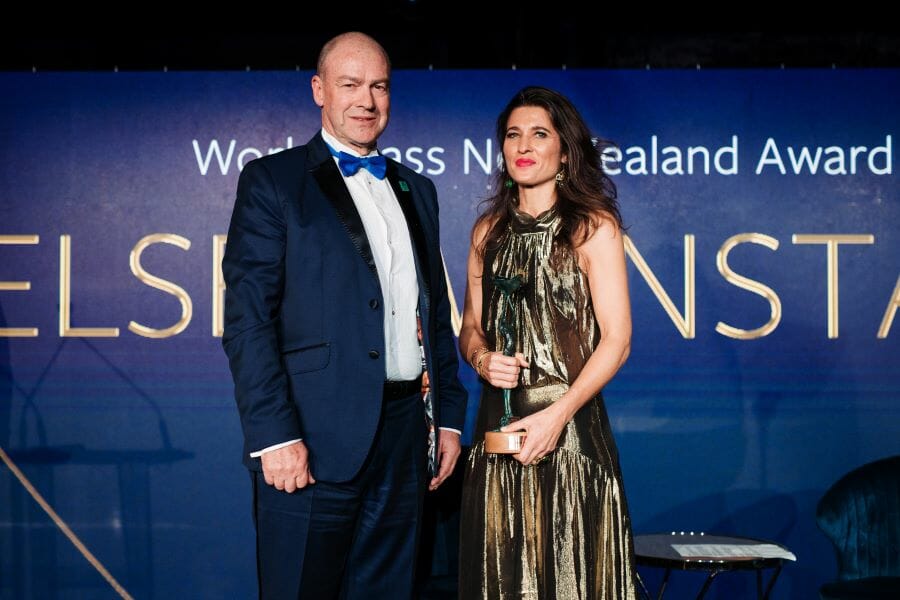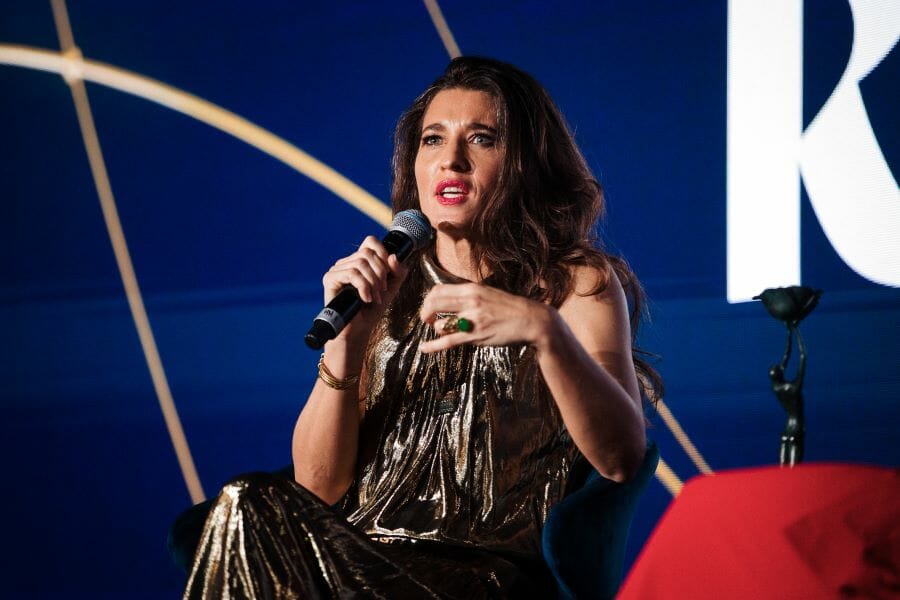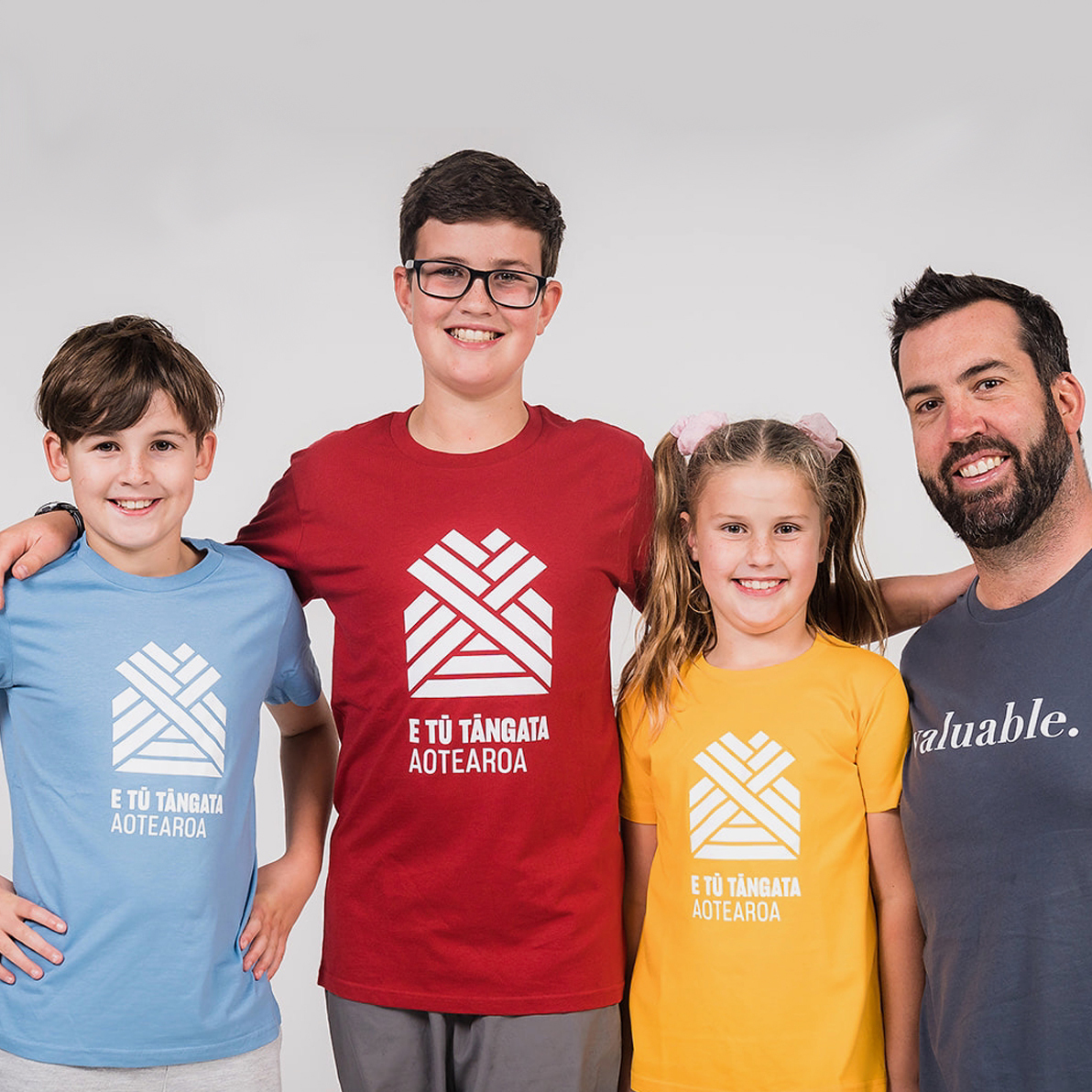2021 Kea World Class New Zealand Award winner – Chelsea Winstanley

Whether producing acclaimed movies, working as a documentary maker, or telling her own stories, Chelsea Winstanley takes a direct approach that blends courage, humility and aroha.
The Academy Award nominated producer’s pride in her Māori heritage and her passion for the work of trailblazing women has given her a unique viewpoint on story-telling in the movie industry.
“In order for us to have true story sovereignty, we have to participate in the intellectual property and concept, from the beginning, through to production, and right through to distribution. And we haven’t had that,” Winstanley says.
“So, that’s a huge driving factor for me right now, where I am in my career, and in the films that I want to make and want to put out into the world. I want to ensure that we have that sovereignty over every part, because if we don’t, we put the stories at risk,” she said.
Winstanley’s own story has seen her go from Bay of Plenty teenager to Hollywood producer. After growing up in Mt Maunganui, she moved to Auckland to be with her mother, where she fell in love with the potential of film-making after viewing Merata Mita 1980 documentary Bastion Point: Day 507.
A young mother just before her 21st birthday, Winstanley took the opportunity to explore her mum’s Ngāti Ranginui and Ngai Te Rangi heritage, with weekly te reo lessons at her whānau’s marae.
“Essentially, the kakano, or the seed, that was planted inside me, is what has informed me as a person. And so my grounding comes from that.”

Winstanley got herself through university, majoring in television, graduating top of the class, and winning media peace awards for her directing. She cites producing “Merata how Mum decolonized the screen” as her most successful film to date.
“I think I’ve always just wanted to say, “Hey, there’s another perspective. And it’s not always what we think the mainstream wants to say about us”,” she says.
“I think that’s why I always want to be involved in creating more of an equitable place for Māori to participate in film and television, is because of my grandmother being strapped in school for speaking Māori – literally having her language beaten out of her.”
Her early success in film led to meeting her film-making idol, Merata Mita, working on Saving Grace: Te Whakarauora Tangata, a documentary about child abuse. Mita died before the film was complete and a devastated Winstanley was left to finish Saving Grace and getting it to screen in 2011, something she feels as her greatest achievement as a creative Maori woman.
Industry recognition for her work began to flow and she was awarded the 2014 SPADA Screen Industry Awards Independent Producer of the Year.. The following year she was named the New Zealand Women in Film and Television’s Mana Wāhine recipient.
Her CV continued to grow with co-production of the mockumentary vampire horror hit What We Do in the Shadows in 2014. She was also part of the team of Māori women behind acclaimed anthology film Waru, which featured in film festivals across the globe in 2017.
Winstanley collaborated with Merata Mita’s son Heperu to produce what was for her, an emotionally significant 2018 documentary, called Merata: How Mum Decolonised the Screen. The film is now available on Netflix.
“There’s so much important work that Merata was doing that really has been an encouraging beacon for us all to follow. She was just phenomenal, and it was a real honour to be able to support her son to make that film,” she says.

She was Oscar®-nominated in 2020 for her work as a producer on Jojo Rabbit and then returned to New Zealand where she announced the launch of LA and Aotearoa-based production company This Too Shall Pass — to tell “authentic stories with unique cultural perspectives”.
A recent project in August 2020 was the release of a short film made entirely on an iPhone 12Pro Max, celebrating the opening of an exhibition entitled Toi Tū Toi Ora: Visual Sovereignty, a celebration of contemporary Māori art at the Auckland Art Gallery.
Chelsea has also recently been announced as a new member of the producer’s branch of the Academy of Motion Picture Arts and Sciences.
Winstanely is humble about her own success and values the efforts of those trailblazers who’ve gone before her and left the industry here in such good shape.
“There are so many incredible Kiwis known around the world for working in this industry, and people – those big companies, all the studios, and all the performers, know they can rely on us, they know our quality is so high.
“I think we’re a nation of innovators, and I feel like we are always up for a challenge. Not just that, but we’re really good storytellers.
“Sometimes I think we’re too modest. And there’s a fine balance… We think we’re not allowed to celebrate ourselves, or only if they celebrate us overseas first, are we allowed to celebrate ourselves.
“We have to learn to be a bit better about celebrating one another,” she says.
Awards
2020 American Film Institute Awards – Film of the year (joint winner): Jojo Rabbit
2020 Academy Awards – Nominated for Best Motion Picture of the Year: Jojo Rabbit
2020 Golden Globe Awards – Nominated for Best Motion Picture – Musical or Comedy: Jojo Rabbit
2020 Producers Guild of America Awards – Nominated for Outstanding Producer of a Theatrical Motion Picture (with Carthew Neal and Taika Waititi): for Jojo Rabbit
2020 Broadcast Film Critics Association Awards (United States) – Nominated for Best Picture: Jojo Rabbit & Nominated for Best Comedy: Jojo Rabbit
2019 Toronto International Film Festival – People’s Choice Award: Jojo Rabbit
2015 WIFT New Zealand Film and Television Awards (Women in Film and Television) – Mana Wahine Award
2014 Rialto Channel New Zealand Film Awards (The Moas) – Best Self-Funded Film: What We Do in the Shadows
2014 SPADA Screen Industry Awards (Screen Production and Development Association, New Zealand – Independent Producer of the Year (shared with Taika Waititi)
2014 Toronto Film Festival – Peoples Choice Award – Midnight Madness Section: What We Do in the Shadows
2013 Hong Kong Film Festival – Firebird Award: Night Shift
2013 Aspen Shortfest (United States) – Youth Jury Prize: Night Shift
2013 Show Me Shorts Film Festival (New Zealand) – Best Film (shared with Matt Noonan): Night Shift
2012 Berlin Film Festival – Crystal Bear – Best Short Film – Generation 14plus section: Meathead
2012 Flickerfest (Australia) – ING Direct Award for Best Film: Ebony Society
2011 Aotearoa Film and Television Awards – Best Short Film: Ebony Society
2011 Cannes Film Festival – Nominated for Palme d’Or for Best Short Film: Meathead
2011 Chicago Film Festival – Silver Plaque: Meathead
2011 Brussels International Independent Film Festival – Nominated for Best Short Film: Ebony Society
2009 WIFT New Zealand Film and Television Awards – Woman to Watch Award

 MENU
MENU









